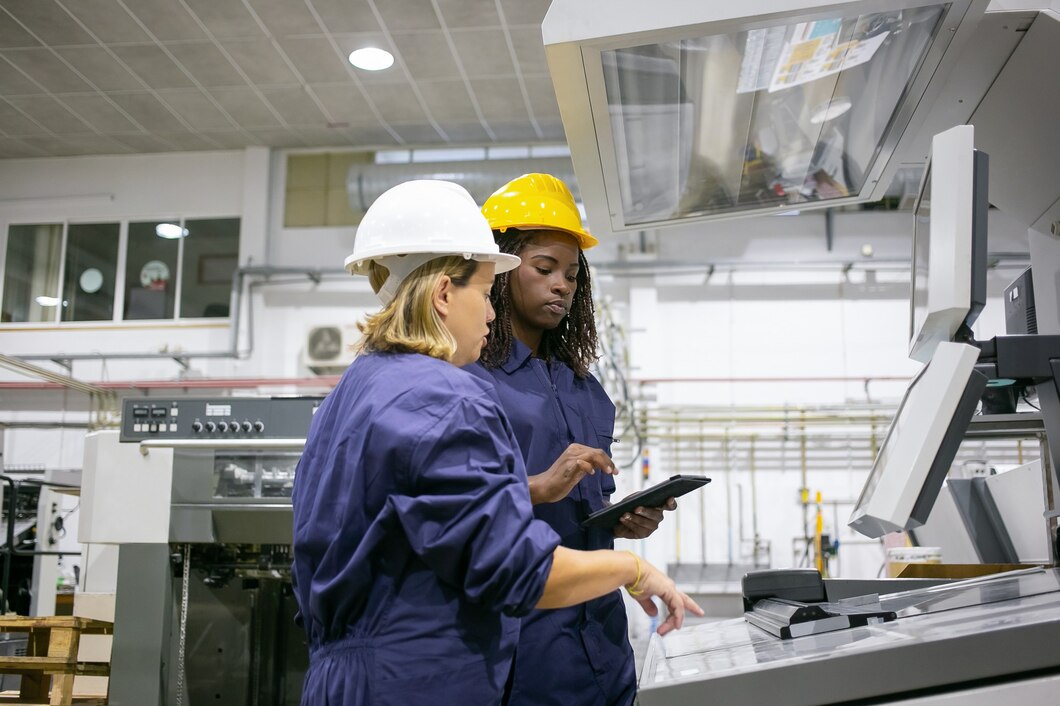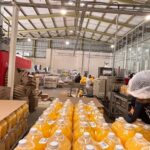Botswana, a country known for its rich natural resources and stable political environment, is increasingly becoming an attractive destination for businesses looking to venture into the manufacturing sector. Historically, Botswana has been heavily dependent on mining, but recent shifts towards diversification have opened up new opportunities, especially in manufacturing. As the global manufacturing landscape evolves, so too does Botswana’s potential to innovate and grow in this sector.
In this article, we will explore the future of manufacturing in Botswana, highlighting the key trends, opportunities, and insights that entrepreneurs can use to thrive in this promising industry.
1. The Manufacturing Landscape in Botswana
Botswana’s manufacturing industry has long been limited compared to other sectors like mining, agriculture, and services. However, the government has prioritized industrialization as part of its Vision 2036, which aims to diversify the economy and reduce reliance on mining. Over the last few years, manufacturing in Botswana has seen steady growth, especially in areas such as food and beverage production, textiles, chemicals, and cement.
Key Manufacturing Sectors in Botswana:
- Food and Beverage Production: With a growing middle class and increasing demand for packaged food and beverages, this sector is expanding rapidly. Local production of beverages, processed foods, and dairy products is on the rise.
- Textiles and Apparel: There is potential for growth in textiles, particularly in the context of export markets. Botswana is also focused on building a local garment manufacturing industry to reduce dependency on imports.
- Building Materials: Cement, bricks, and other construction materials have high demand, particularly due to urbanization and infrastructure development.
- Chemicals and Pharmaceuticals: The need for locally produced chemicals, cosmetics, and medicines is growing as the country aims to become self-sufficient in various products.
2. Embracing Technology in Manufacturing
As the global manufacturing sector increasingly shifts towards automation, digitalization, and smart technologies, Botswana’s manufacturing industry faces both challenges and opportunities. The adoption of advanced technologies such as artificial intelligence (AI), machine learning, robotics, and the Internet of Things (IoT) is transforming the way manufacturing operations are conducted worldwide. These technologies help improve efficiency, reduce costs, and enhance product quality.
Opportunities for Botswana Entrepreneurs:
- Automation: Implementing automated systems in production lines can help Botswana-based manufacturers reduce labor costs, improve speed, and increase output.
- 3D Printing: This technology can help reduce waste and improve the customization of products, especially in the production of components or spare parts.
- Supply Chain Management: Digital tools such as IoT devices and AI-driven analytics can streamline supply chains, optimize inventory management, and reduce lead times.
- Smart Manufacturing: The integration of IoT sensors and data analytics allows businesses to monitor equipment and predict maintenance needs, minimizing downtime and maximizing productivity.
Key Steps for Entrepreneurs:
- Invest in training and upskilling your workforce to operate and manage new technologies.
- Explore partnerships with tech companies that specialize in manufacturing automation and software solutions.
- Take advantage of government incentives and grants that support technological innovation in manufacturing.
3. Sustainable Manufacturing and Green Technologies
The global shift towards sustainability is creating significant opportunities for the manufacturing sector. As consumers and governments increasingly demand environmentally friendly products and processes, sustainable manufacturing practices are becoming essential. For Botswana entrepreneurs, this trend presents an opportunity to stand out in the market by adopting green technologies and eco-friendly practices.
Key Trends in Sustainable Manufacturing:
- Energy-Efficient Production: Adopting energy-efficient technologies reduces production costs and minimizes the environmental impact. Solar energy, in particular, is a key resource in Botswana, with vast solar potential that can power manufacturing operations.
- Waste Reduction: Implementing circular economy practices, such as recycling and reusing materials, can help businesses reduce waste and improve their bottom line.
- Sustainable Packaging: There is a growing demand for sustainable packaging materials, such as biodegradable plastics or recycled materials, particularly in the food and beverage industry.
- Water Conservation: In a country like Botswana, where water scarcity can be an issue, adopting water-efficient manufacturing processes is not only environmentally responsible but also cost-effective.
Opportunities for Botswana Entrepreneurs:
- Invest in renewable energy systems (e.g., solar, wind) to reduce reliance on grid power and lower operational costs.
- Implement waste recycling and water conservation initiatives within manufacturing processes.
- Partner with global eco-friendly brands or retailers to position your products in the sustainable market segment.
4. Skills Development and Workforce Training
One of the biggest challenges facing Botswana’s manufacturing sector is the shortage of skilled labor. The industry is in need of qualified professionals who can operate advanced manufacturing technologies, manage production processes, and design innovative solutions. This gap presents an opportunity for entrepreneurs to invest in workforce training and development.
Key Opportunities in Skills Development:
- Technical Training Programs: Invest in training programs to develop skills in areas such as machine operation, robotics, and industrial design.
- Public-Private Partnerships: Collaborate with local technical colleges, universities, and the government to provide specialized training in manufacturing technologies.
- Apprenticeships and Internships: Offer apprenticeship programs that allow young people to gain practical experience in the manufacturing sector.
Long-Term Benefits:
- Building a skilled workforce will not only improve the quality of your products but also contribute to the overall development of Botswana’s manufacturing ecosystem.
- Entrepreneurs can also access a wider pool of talent by working with schools and universities to promote careers in manufacturing.
5. Export Opportunities and Regional Integration
Botswana’s location within the Southern African Development Community (SADC) and its membership in the African Continental Free Trade Area (AfCFTA) create significant opportunities for entrepreneurs to tap into regional and global markets. Manufacturing businesses in Botswana can take advantage of the expanding African market, where demand for locally produced goods is rising.
Key Export Opportunities:
- Processed Foods and Beverages: There is strong demand for high-quality processed food products in neighboring countries, particularly in Zambia, South Africa, and Namibia.
- Building Materials: With the construction industry booming in Africa, Botswana-based manufacturers can capitalize on the need for affordable, locally produced building materials.
- Textiles and Apparel: Leveraging trade agreements such as the SADC Free Trade Area, Botswana manufacturers can target export markets in the region.
Strategies for Exporting:
- Research market demands in neighboring African countries and explore opportunities to scale production for export.
- Leverage trade agreements to benefit from reduced tariffs and improved market access within the African continent.
- Join local and international trade fairs to network with potential clients, suppliers, and partners.
6. Government Policies and Support for Manufacturing
The Botswana government is keen on fostering growth in the manufacturing sector through various initiatives and incentives. Understanding these policies and utilizing the available support can give entrepreneurs a competitive edge in the market.
Government Support Measures:
- Botswana Investment and Trade Centre (BITC): BITC offers incentives to businesses in the manufacturing sector, such as tax breaks, financial assistance, and market access support.
- National Development Plan (NDP 11): This plan outlines Botswana’s long-term development goals, including the promotion of industrialization and the creation of jobs in manufacturing.
- Public Procurement Policies: The government encourages the local sourcing of products by prioritizing Botswana-made goods in its procurement processes.
Opportunities for Entrepreneurs:
- Take advantage of government incentives to reduce startup and operational costs.
- Participate in government-backed trade missions to explore international market opportunities.
- Work with the government to develop industry-specific policies and create a favorable business environment for manufacturing.
The future of manufacturing in Botswana is full of promise, driven by technological advancements, a growing focus on sustainability, and expanding regional markets. Entrepreneurs who recognize these opportunities and invest in the right technologies, skills, and business strategies will be well-positioned to succeed in the evolving manufacturing sector. By embracing innovation, sustainability, and export opportunities, Botswana’s manufacturing industry can play a key role in driving the country’s economic diversification and development.






